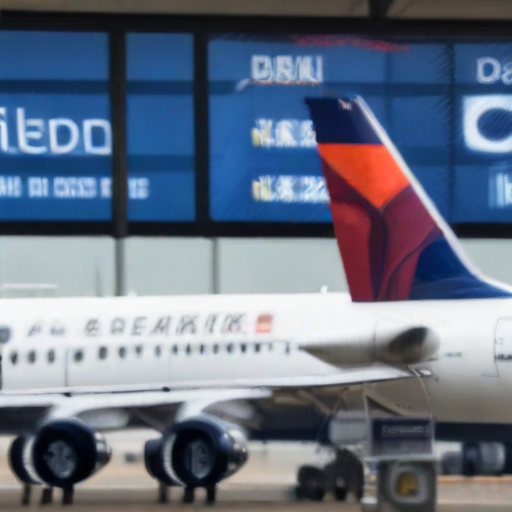Delta Air Lines faced significant operational challenges on Monday as it continued to navigate recovery from a major software outage that disrupted flights globally over the weekend. Following a weekend marred by delays and cancellations, Delta reported the cancellation of approximately 1,300 flights on Sunday alone and saw further issues on Monday, where by 8 a.m. ET, 626 flights had been canceled and 144 delayed, accounting for roughly 20% of its planned operations for the day. In comparison, American Airlines experienced minimal disruptions, with only 38 cancellations and 155 delays.
The root cause stemmed from a problematic software update initiated by cybersecurity firm CrowdStrike, which led to a defect affecting Microsoft’s Windows operating systems. This malfunction resulted in substantial interruptions across various sectors, with airlines facing the brunt of the impact. On the unfortunate Friday before the glitch, over 46,000 flights were delayed and more than 5,171 were canceled, with Delta being particularly hard hit.
Delta’s CEO, Ed Bastian, expressed his regret for the inconvenience caused, acknowledging the challenges of canceling flights and stressing the company’s commitment to connecting travelers. To alleviate some of the challenges faced by passengers, Delta has introduced a travel waiver that allows customers to alter their flight plans without incurring additional fees. Moreover, they are offering meal vouchers, hotel accommodations, and transportation options for those affected by the disruptions.
Transportation Secretary Pete Buttigieg highlighted the concerns raised by passengers on social media, noting the large volume of complaints regarding Delta’s response to the situation. He emphasized the airline’s responsibility to ensure refunds, offer free rebooking, and deliver timely reimbursements for meals and hotel stays relating to the disruptions.
Despite the ongoing issues, this incident highlights the ever-present vulnerabilities in the airline industry, particularly concerning technological integrations. Airlines and their partners must continually refine their systems and customer support strategies to prevent similar occurrences in the future.
In summary, while the current disruption is challenging for Delta and its passengers, it also serves as an important lesson in the critical need for robust technology management in the aviation industry and the necessity for responsive customer service protocols. Moving forward, we can hope for improvements not only in Delta’s operational resilience but also in their customer engagement strategies to enhance the travel experience for all.
